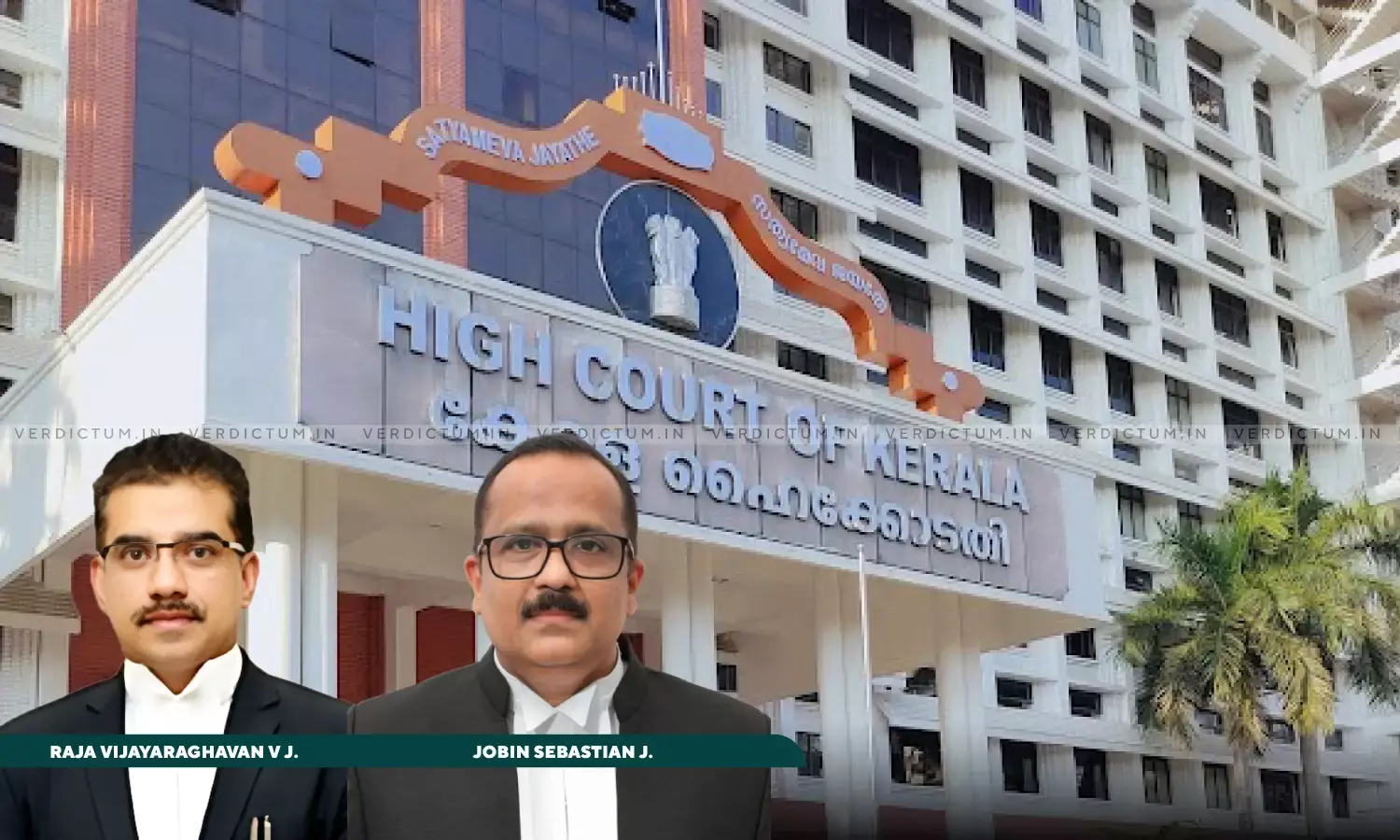Can’t Conclude That Accused Suffered From Mental Impairment If He Remained At Crime Scene Without Attempting To Flee: Kerala HC Upholds Life Sentence Of Man For Killing 3-Yr-Old Son
The Kerala High Court upheld the life sentence imposed upon a man for killing his 3-yr-old son and has observed that the conduct of the accused of remaining at the crime scene without attempting to flee, in itself, is insufficient to conclude that he suffered from mental impairment.
The accused man had approached the High Court by filing an appeal assailing the finding of guilt, conviction and sentence passed against him for offence punishable under Section 302 of the IPC.
The Division Bench comprising Justice Raja Vijayaraghavan V & Justice Jobin Sebastian held, “Therefore, the conduct of the accused of remaining at the crime scene without attempting to flee, in itself, is insufficient to conclude that he suffered from mental impairment, especially since the defence has failed to present any positive evidence to demonstrate that the accused was of unsound mind at the time of alleged offence.”
Advocate Ramesh .P represented the Appellant-Accused while Senior Public Prosecutor Alex M Mathew represented the Respondent-State.
The incident is of the year 2015 when the accused, driven by hostility towards his wife and following a quarrel, took his children to the neighboring house. He committed murder of his 3-yr-old son, Rahul, by strangulation and also by assaulting him with a coconut scraper. After trial, the accused was found guilty for offence punishable under Section 302 of the IPC and he was sentenced to undergo imprisonment for life and to pay a fine of Rs.50,000 with a default clause to undergo rigorous imprisonment for three more years. The said judgment of conviction and order of sentence was assailed before the High Court.
The Bench took note of the fact that the prosecution relied upon the evidence of PW1 and PW2, to prove the occurrence. PW1 and PW2 were the inmates of the house where the gruesome incident allegedly occurred.These two witnesses had consistently testified that they witnessed the incident in the light of a kerosene lamp that was lit inside their house. The Bench found no reason to disbelieve the presence of these witnesses in their own house in the late night and that there was sufficient source of light to enable them to witness the incident in this case. The evidence of ocular witnesses clearly portrayed the way in which the accused took away the life of the deceased minor boy.
Both the witnesses consistently stated that the accused dragged the child around the house, inflicted a fatal head injury with a coconut scraper, and strangled him by tightly wrapping a dhoti around his neck. “The terror instilled by the incident is beyond comprehension”, the Bench said. It was further clarified by the Bench that the failure of witnesses to mention about few overt acts which led to some minor injuries noted in the postmortem examination was only liable to be disregarded. “When the eyewitnesses' account is convincing and sufficient to establish the occurrence, proof of motive holds little significance”, it added.
One of the contentions advanced by the counsel for the accused was that the trial court erred in appreciating the fact that at the time of the commission of the offence, the accused was of unsound mind thereby entitling him to exemption from criminal liability under Section 84 of the Indian Penal Code.Upon examining the evidence in this case, the Bench observed that the accused failed to present any evidence or circumstance to demonstrate legal insanity, thereby rendering him incapable of understanding the nature and quality of the act he committed. The Bench noticed that both the witnesses and the nephew of the accused unequivocally denied the suggestion that the accused suffered from an unsound mind.
Another contention raised was that the conduct of the accused after the commission of the offence, specifically, remaining in the scene of occurrence without making an attempt to flee, demonstrated a lack of rational thought suggestive of an unsound mind. The Bench responded by saying that this contention would fail as it cannot be expected that every person will behave in a particular manner when placed in the same situation. There is no rigid or inflexible rule that after committing a crime every accused will make an attempt to abscond.
On the issue of the failure of PW1 and PW2 to intervene and rescue the child, the Bench stated that it would be unreasonable to expect PWs 1 and 2, who are women, to confront an armed and violent attacker in such circumstances.
“The nature of the acts attributed to the accused, the weapon used, and the manner in which the injuries were inflicted on vital body parts clearly indicate that the injuries were inflicted with the intention to cause death. There is no evidence to suggest that any of five exceptions to Section 300 of the IPC are attracted in the instant case. On the contrary, the evidence demonstrates that the action of the accused falls squarely within the scope of Section 300 of the IPC, rendering him liable for punishment under Section 302 IPC”, the Bench held.
Dismissing the appeal, the Bench confirmed the guilt, conviction, and sentence passed by the Sessions Judge.
Cause Title: Raju M.A. @ Undachi Raju v. State of Kerala [Neutral Citation: 2024:KER:83122]
Appearance:
Appellant: Advocates Ramesh P, Fathima Nargis K.A. & Sangeerthana M.
Respondent: Senior Public Prosecutor Alex M Mathew




